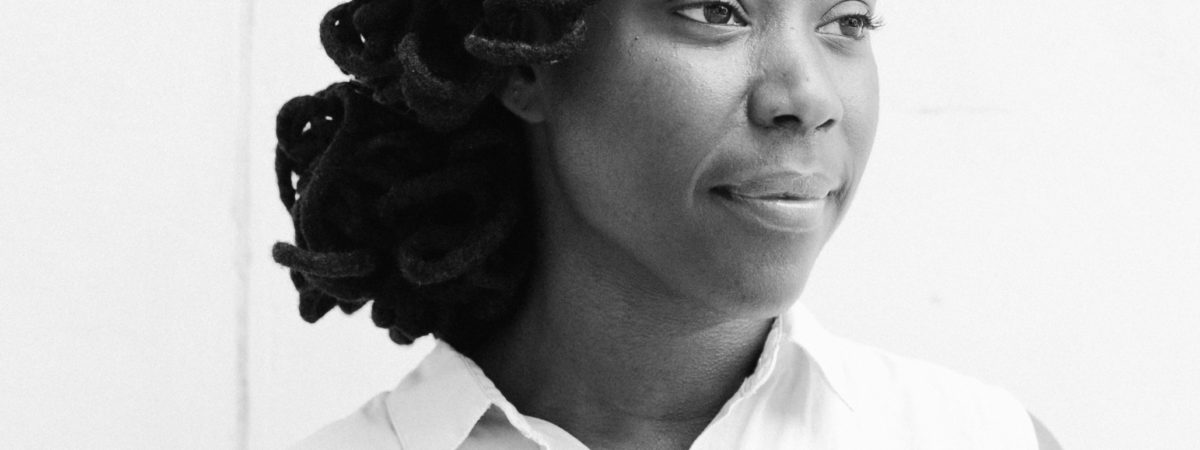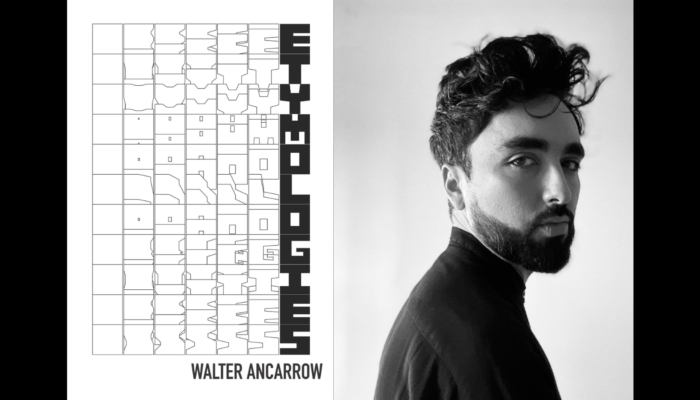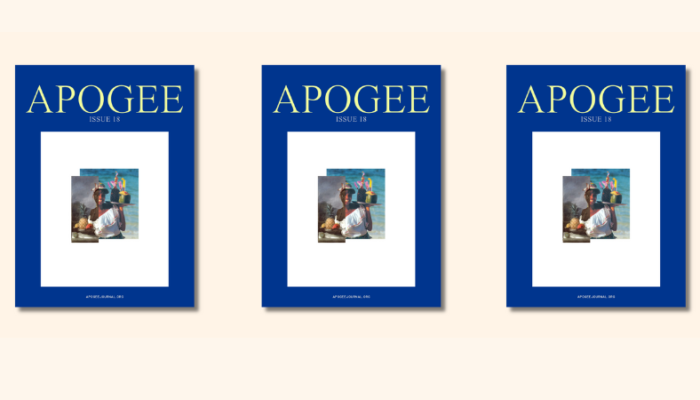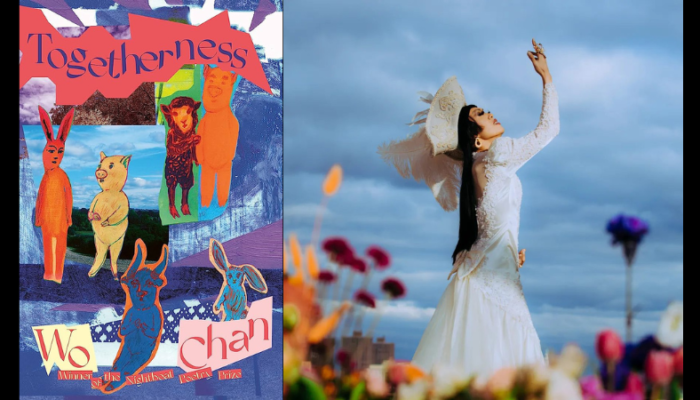Apogee Journal’s nonfiction editor, Safia Jama, asked poet and scholar Naomi Extra about the making of her essay, “Blackgirl Pleasure Notes: Life, Sex, & 90s Black Cinema,” which is now available for your reading pleasure in Apogee Journal Issue 07.

Apogee Journal [AJ]: When did you first get the notion to write about one of your favorite films, Love Jones?
Naomi Extra [NE]: I don’t remember exactly how I got the idea but I think my interest in representations of black sexual pleasure was sparked by my academic studies. I’m a doctoral student at Rutgers-Newark and in one my classes I read “The Myth of the Vaginal Orgasm” by Ann Koedt. This piece changed my life! It was the first time I’d read about or had the chance to think critically about the female orgasm and what role so-called male experts like Freud had in the oppression of women’s sexual pleasure. I thought about how I’d been socialized to think about sex as a black woman. This lead me to a set of research questions about black women, sex, pleasure, and feminism. I wondered if black feminists were also publicly engaging in discussions about orgasms, for example. I was looking everywhere for positive imagery of black sexual pleasure and one of the places I looked to was Love Jones.
AJ: Why was it important to include reflections upon your personal life in this essay?
NE: I had this ache to know if black women were embracing sex and pleasure in their feminism during in the 70s when these vibrant conversations were being had among white women. And so this was the beginning of an ongoing journey to excavate the historical and present experiences of black people, particularly black women, in relation to sex and pleasure. In order to go on this journey, I felt I had to confront my own sexual subjectivity. Inherently, sex is personal. It’s about people’s bodies. Writing about Love Jones was a way for me to sort out some of what I was trying to understand historically, but it was also a way for me to think about how my own sexual agency has been shaped by the oppressive forces of racism. There are so many ways that racism inflicts harm on the intimate lives of black and brown people. I think part of the work we do as black feminists, activists, artists, and educators is grounded in making our feminism practical and applicable in our personal lives. This means reflecting on our own lives and the ways in which we have been affected by oppressive forces.
AJ: What are some of your obsessions right now, literary or otherwise?
NE: I have been thinking a lot about the breadth of what artistic resistance looks like for black people right now and opportunities for cross-disciplinary collaboration. Recently, I went to the Sing Her Name concert in New York City. It was a tribute to Sandra Bland and featured the work of three black women composers. One of the pieces was a collaboration between poet Sharan Strange and musician, composer, and scholar, Courtney Bryan. Right now seems like a great moment to build and strengthen our artistic bonds across genre. I think that it’s time to bring the writers, the musicians, the activists, the dancers, the educators, and the painters, and the scholars together in one room. I’m constantly brainstorming ways to create this kind of radical artistic space.
AJ: What do you love most about working in the essay form?
NE: I love the constant movement of long lines, paragraphs, and the predictability of punctuation in most prose. I also think that essays lend themselves in a particular way to argument. I love the basic art of argument—supporting examples, research, topic sentences. There’s a certain sense of assertiveness that I feel freer to invoke in prose. I don’t ever feel like I have to be quiet or beautiful as I do when I’m writing poetry. I also love messing with the form, taking a topic sentence and turning it into a transition. Sometimes it works, sometimes it doesn’t. I always see essays as an opportunity to say what it is, unadorned and free.




